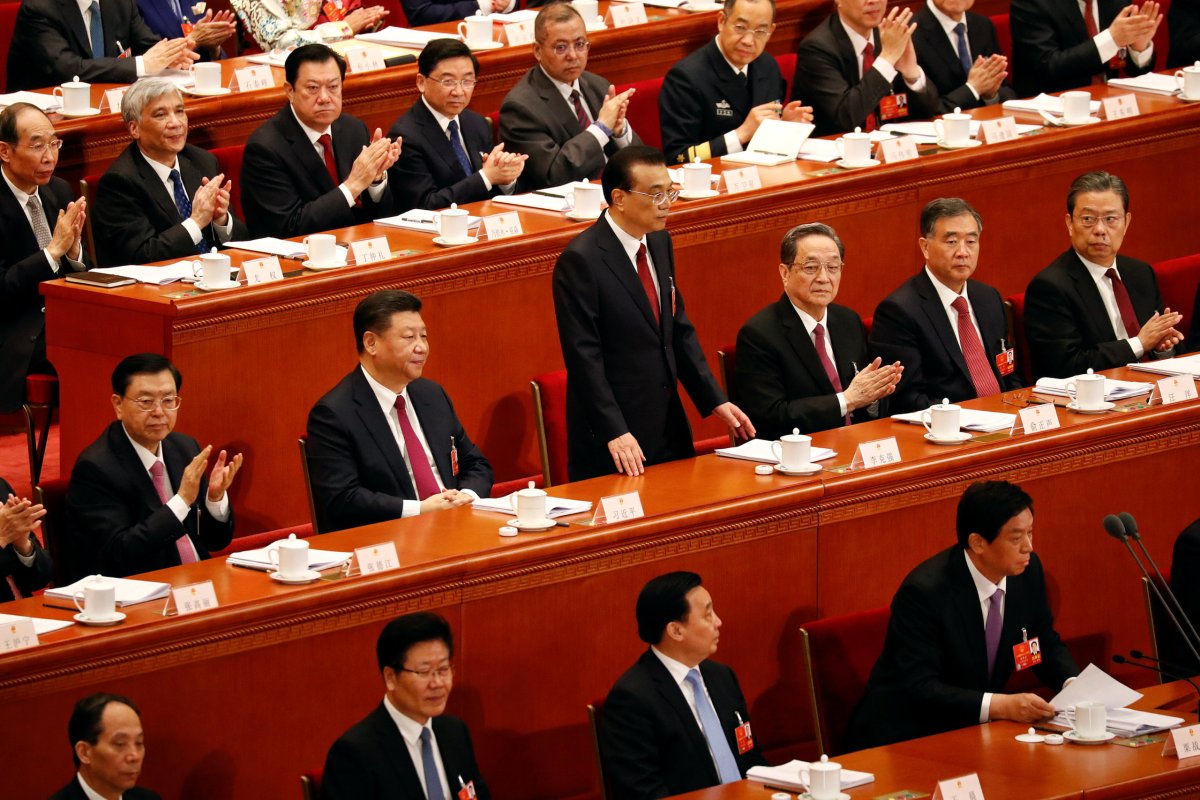BEIJING (Reuters) – China’s first reduction in its budget deficit target in six years does not suggest less government spending this year or signal an intensified effort to reduce central government debt, a senior official said.
Premier Li Keqiang announced on Monday in his annual work report that Beijing has cut the budget deficit target to 2.6 percent of gross domestic production (GDP) from 3 percent in 2017.
Economists had expected it to be maintained or trimmed only slightly.
The surprise move, together with other official comments on other economic targets and the need for further reforms, was seen by some China watchers as an indication that the pace of fiscal expansion may be slowing as Beijing’s ramps up its campaign to contain risks in the financial system.
Greater caution over spending and tightening monetary conditions could retard the pace of economic growth not only in China but globally.
But Yang Weimin, the deputy director of the Office of the Central Leading Group on Financial and Economic Affairs, stressed that a separate government-managed funds budget has a substantially bigger deficit – almost 70 percent higher from last year with an increase of 550 billion yuan ($86.74 billion).
This deficit is financed by the issuance of special purpose local government bonds – debt which is repaid through returns on investment projects rather than fiscal revenue.
Yang spoke to Reuters late on Monday on the sidelines of the annual parliament meeting.
The reduction in the target for the fiscal deficit as a proportion of GDP is thus “not a negative move for economic activity”, Everbright Sun Hung Kai, a Beijing-based investment bank, wrote in a note.
“Taking the two budgets into account, we estimate that the total budget deficit as a proportion of GDP will marginally increase this year to 4.1 percent versus 4.0 percent in 2017,” it said.
Beijing said on Monday it has set an economic growth target of around 6.5 percent for this year, the same as last year, though actual 2017 growth came in at a much stronger 6.9 percent.
Yang also said China’s crackdown on riskier financing practices such as shadow banking are mainly targeted at the highly-leveraged corporate sector.
“The main task (of deleveraging) is to bring down the corporate debt ratio,” he said, while adding that China’s rapidly-rising household debt, largely due to a surge in mortgages, should “stop increasing”.
Economists at ANZ expect China’s total debt to grow by 10.6 percent this year, slightly more than 2017, but much slower than
the compound annual growth rate of 16.4 percent between June 2010 and June 2017.
The debt-to-GDP ratio is estimated to remain at 254.7 percent in 2018, the same as at the end of 2017, ANZ said in a research note on Monday.
China’s sovereign debt levels are not excessively high by global standards.
But state-owned companies which are used as growth drivers account for a hefty portion of its corporate debt, which has ballooned rapidly to levels that some economists say could signal a banking crisis in the next few years.
Debt-to-GDP for non-financial companies rose from around 120 percent by the end of 2011 to a recent peak of 166.8 percent. But the figure came down slightly to 163.4 percent in the second quarter of 2017, according to data from the Bank for International Settlements.
Chinese household debt-to-GDP rose to 47 percent in the second quarter of 2017 from 39 percent in the same period two years ago, the BIS data showed.
(Reporting by Yawen Chen and Ryan Woo; Editing by Kim Coghill)















